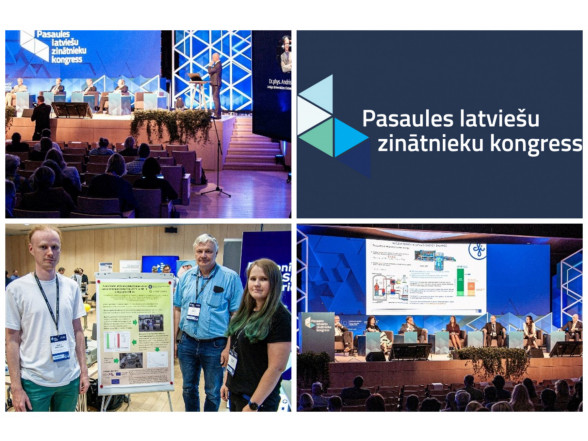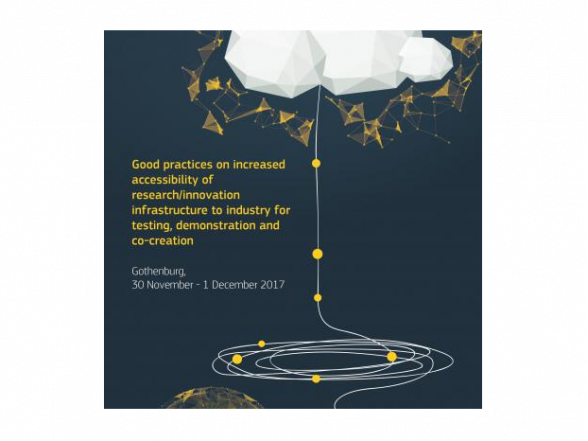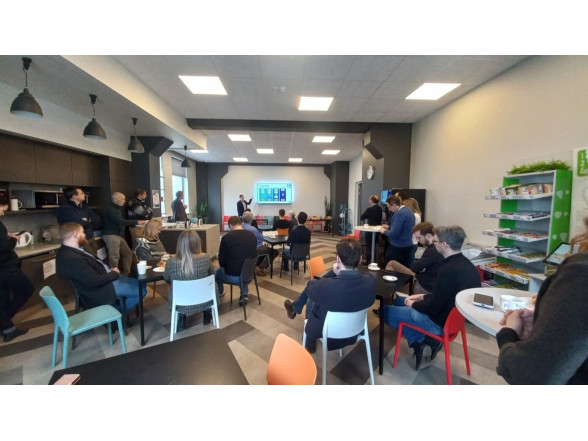From June 27 to 29, the 5th World Congress of Latvian Scientists, "Science for Latvia," took place in Riga, bringing together more than 1,300 Latvian science ecosystem stakeholders from all over the world in person and remotely. The congress was one of the widest-reaching events in Latvian science. To focus on the analysis and potential solutions of present and future societal and global challenges, this year, its program was divided into three interdisciplinary and interlinked topics: Digital Transformation, Green Transition, and Science Impact.
The congress was opened by speeches of the President of Latvia, Egils Levits, Prime Minister Krišjānis Kariņš, and the Minister of Education and Science, Anda Čakša, who emphasized that one of the main challenges is the competitiveness of Latvian science in the world. The joint efforts of scientists, students, professors, and industry were essential. She also said that the congress served as a platform to create innovations.
The Congress featured Latvian and diaspora researchers, young researchers, students, entrepreneurs, international and local partners, and representatives from national and international public administration institutions and politicians.
Over three days, several sessions were held in which various aspects related to the main topics of the congress were discussed. Scientists and industry experts spoke on topics such as digitization, artificial intelligence, green energy and related challenges, the impact of science on society, bio-resources and resource sufficiency, commercialization of science and others. Young scientists from Latvia and abroad also shared their thoughts on the impact of science and careers in their industry.
Dr. habil. phys. Andris Šternbergs, the ISSP UL’s deputy director for science, participated in the congress discussion on establishing a sustainable energy supply in Latvia, discussing sustainable energy sources such as hydrogen, nuclear, and solar energy.
In the panel discussion “Industry 5.0”, scientists and other industry experts shared their knowledge about what technologies will determine the development of the new industrial paradigm and the challenges of new technologies: the ISSP UL’s director, Dr. phys. Andris Anspoks emphasized the importance of cooperation between science and industry and people and technology: “In any field - science or industry - specialists often specialize in one specific topic to maintain their competence. This means that to accomplish something great, you need to collaborate with others. Together, we can do a lot. Cooperation between science and industry is always a hot topic. That is why such congresses are needed - so that we can meet and talk."
Within the framework of the Congress, a "Science Slam" competition was held, i.e., a competition for science research presentations understandable to a non-expert audience, in which eight doctoral students and applicants for a scientific degree participated. In a fierce battle, collecting the votes of the jury and the audience, four competition winners were chosen, among them - the scientific assistant of the ISSP UL’s Laboratory of Spectroscopy, Rihards Ruska.
In parallel with the sessions, Latvian scientists also demonstrated digitalization inventions. One of the presented research projects was the Optical Temperature Meter - an invention of our institute’s scientists for accurate temperature measurements in a high electromagnetic field. The leading researcher from the ISSP UL’s Laboratory of Spectroscopy, Dr. phys. Andris Fedotovs explained that temperature measurements could be destroyed under the influence of a high electromagnetic field, which was not allowed in various fields, for example, medicine.
During the Congress, almost 200 poster presentations were demonstrated, among which Alexei Kuzmin, head of the ISSP UL’s EXAFS Spectroscopy Laboratory, presented the report "Non-contact nanothermometry based on X-ray absorption spectra" on the topic "Impact of science".
The World Congress of Latvian Scientists has been held in Latvia since 1991, and four congresses have been held so far, which have gathered many participants from Latvia and abroad. Among the main goals of the congress are to provide an opportunity to exchange opinions on current scientific problems, to build and strengthen contacts of Latvian scientists with Latvian scientists from various countries, and to draw the attention of the public, media and politicians to the importance of Latvian science and the work of scientists.
More information about the Congress is available on the event’s webpage.
The live recordings of the Congress are available on the YouTube account of "Zinātne Latvijai".



